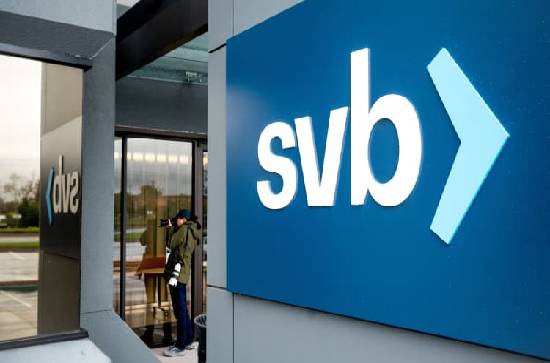US regulators have taken control of Silicon Valley Bank (SVB) and its customer deposits, marking the largest failure of a US bank since 2008. SVB is a key tech lender that was struggling to raise funds to cover a loss from the sale of assets impacted by higher interest rates. This prompted a rush of customer withdrawals and sparked concerns about the state of the banking sector.
The Federal Deposit Insurance Corporation (FDIC), which typically insures deposits up to $250,000, has taken charge of the roughly $175 billion (£145 billion) in deposits held at the bank, which is the 16th largest in the US. Money raised from selling the bank's assets will go to uninsured depositors. SVB was attempting to raise $2.25 billion (£1.9 billion) to cover a loss from the sale of assets, primarily US government bonds impacted by higher interest rates, which caused investors to flee the bank.
Shares in the bank experienced their largest one-day drop on record on Thursday, plummeting more than 60%. After-hours sales caused the shares to fall further before trading was halted. Concerns that other banks could face similar problems resulted in a widespread selling of bank shares globally on Thursday and early Friday.
The collapse of this major California based bank is causing a lot of concern among NRI investors because California is a hub of tech professionals and many of them have some or the other financial dealings with SVB. The impact or exposure of NRI funds and losses is yet to come out but it is definitely a shock for everyone at a time of recession.



























